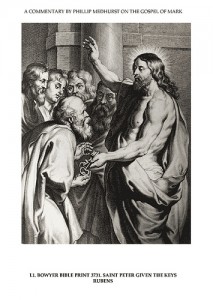 In scouting there is the phrase “Leave No Trace.” It is an outdoor moral ethic that carries the tenant that upon you entering or leaving the woods, trail, forest, etc. that there are no indications that you have been there. What if we carry over this idea to leadership — “upon your entry or exit there should be no trace of you.” Notice that I did not say your work. A leader’s job is to equip, train, teach, and lead in such a way that others do ministry and do it well. Far too many leaders fail to hand tasks over to others (delegation). Why they do this varies from leader to leader — some simply feel there is no one who can do it like they can, or there is no one there, or they just enjoy doing the task (or many tasks).
In scouting there is the phrase “Leave No Trace.” It is an outdoor moral ethic that carries the tenant that upon you entering or leaving the woods, trail, forest, etc. that there are no indications that you have been there. What if we carry over this idea to leadership — “upon your entry or exit there should be no trace of you.” Notice that I did not say your work. A leader’s job is to equip, train, teach, and lead in such a way that others do ministry and do it well. Far too many leaders fail to hand tasks over to others (delegation). Why they do this varies from leader to leader — some simply feel there is no one who can do it like they can, or there is no one there, or they just enjoy doing the task (or many tasks).
Leaders also want to make a difference (see the logo the home page). They feel that if they do less and others do more then they are not “pulling their weight,” or they may lose their ministry position.
Delegation Principle #1 — Let Go
Make it  top priority to get out from under any tasks that other people “can” do. Do you really need to be doing bulletins, taking out the trash, or teaching  in a classroom? Perhaps, but perhaps not. Train others to do the task, and let it go! This is the only way your ministry will ever grow. You can only do so much in 24 hours, 7 days a week, 365 days a year. You don’t get extra points for doing everything. You are actually robbing others of an opportunity to serve Christ. Are you wanting others to see how much you are doing? By letting go of some things, you can pick up new tasks, or do what only you can do, better.
Delegation Principle #2 –Â Step Back
 Leave no trace of your presence. Many leaders are the “linchpin” of their organizations. If they aren’t there, everything falls apart. You will get sick, want a vacation, or just take a breather. How will these things happen if you are the only one who knows how or are willing to do the ministry? Obi Wan had Anikan Skywalker, Batman had Robin, and Jesus had the disciples. Find out and do only what you can do, and then find an apprentice. Â That “thing” might be preaching, but if you look and pray hard enough there is someone you can train to do “it” too. Step back and let someone else stand in your place for time to time (like vacation time!)
Leave no trace of your presence. Many leaders are the “linchpin” of their organizations. If they aren’t there, everything falls apart. You will get sick, want a vacation, or just take a breather. How will these things happen if you are the only one who knows how or are willing to do the ministry? Obi Wan had Anikan Skywalker, Batman had Robin, and Jesus had the disciples. Find out and do only what you can do, and then find an apprentice. Â That “thing” might be preaching, but if you look and pray hard enough there is someone you can train to do “it” too. Step back and let someone else stand in your place for time to time (like vacation time!)
Back to Leave No Trace
As leaders we want to be remembered for our impact on life — but the cold reality is we won’t. Because it has never been, nor will it ever be about us. It is and has always been about God, and His glory. Your task is to pass on knowledge and skills to as many people as possible as you can so that God may receive glory and His bride (the church) may be strong. Leave no trace of your name, only your work.
Questions to ask yourself:
1. Do I have to do everything? Why do I cling to certain tasks?
2. What is it that only I can do in my organization? What tasks do I need to “unload?”
*This brings up another topic to consider in this process. People are not there to make your life easier — they are people, not bodies to do things for you. You must love them, and have their benefit at heart. How can you help them to do their new ministry better? When will you check on them to see how it is going? Did you write them a thank you note? Do they know that you love them? How?
The primary reason for “Leave No Trace” is so that those who come after you can enjoy nature, just as you have enjoyed nature. Â In leadership if you do leave a trace, then those after you have to clean it up, or deal with the disturbance or benefit from the advancement.
Solo Dei Gloria


